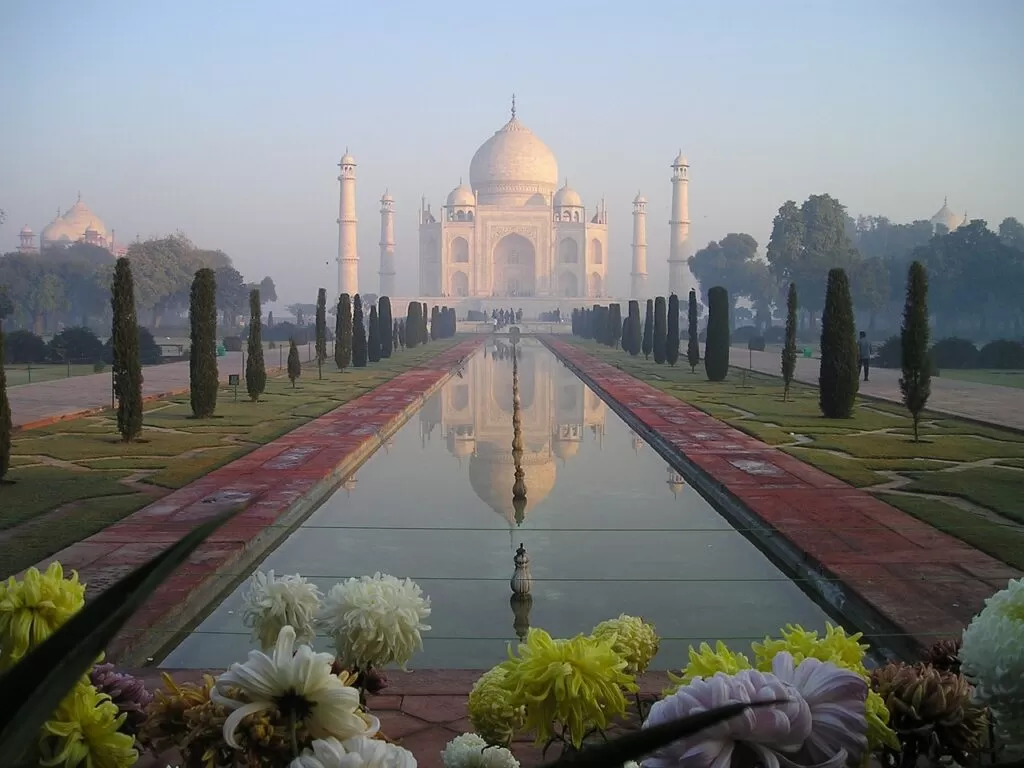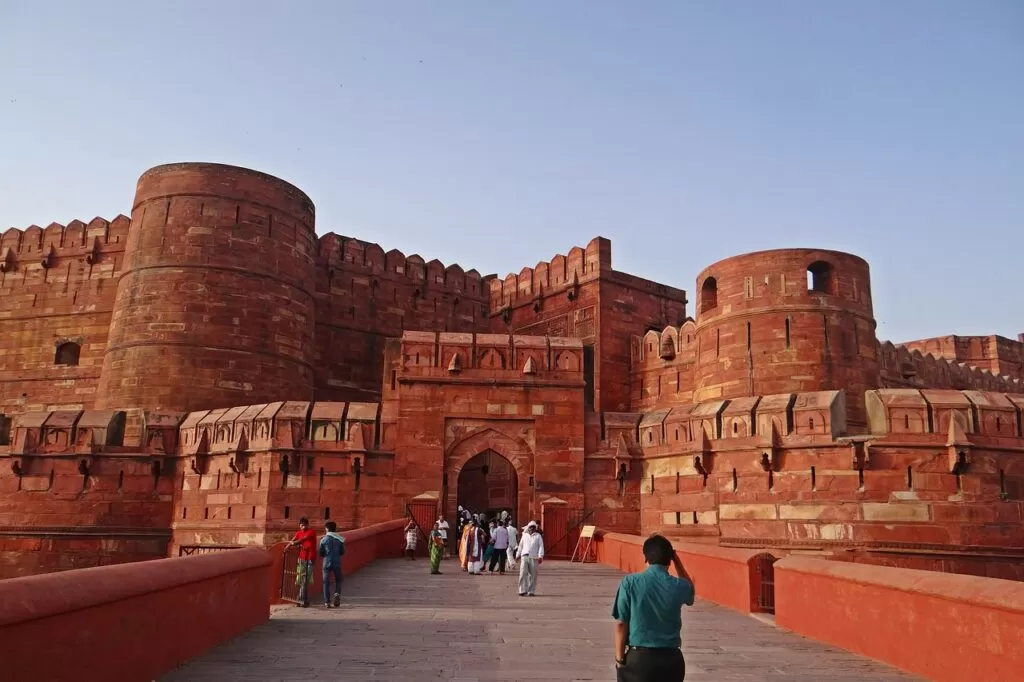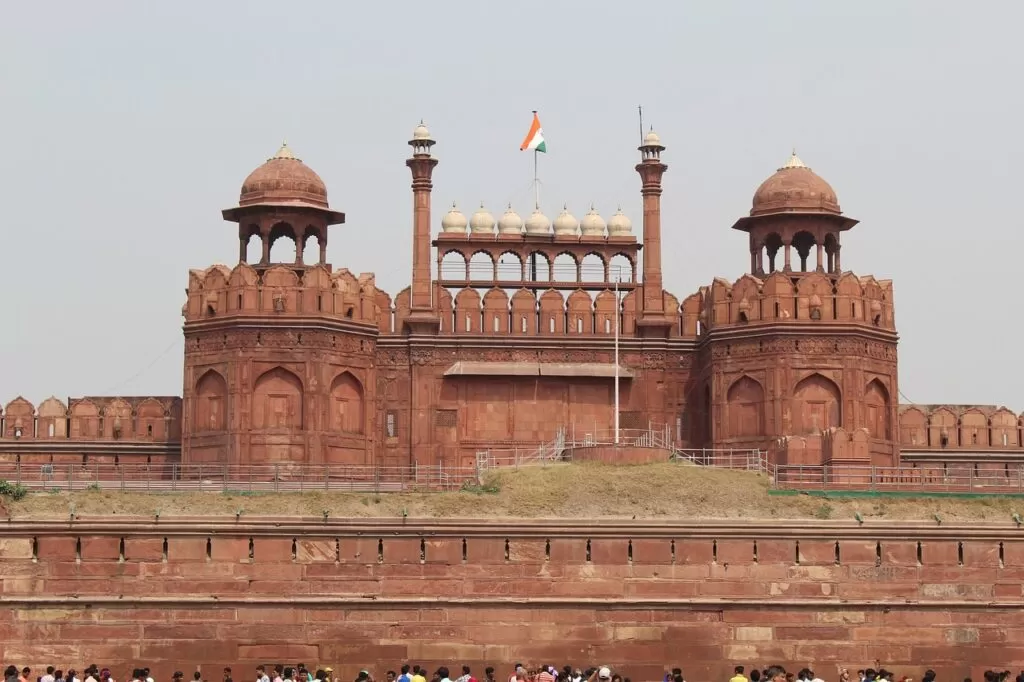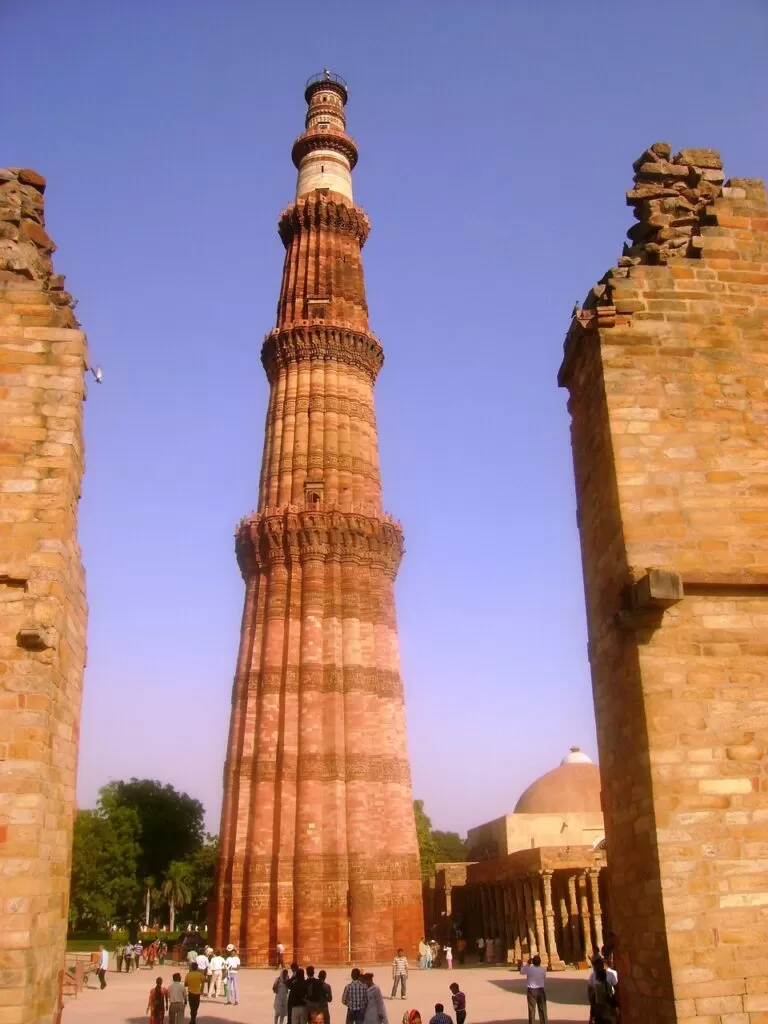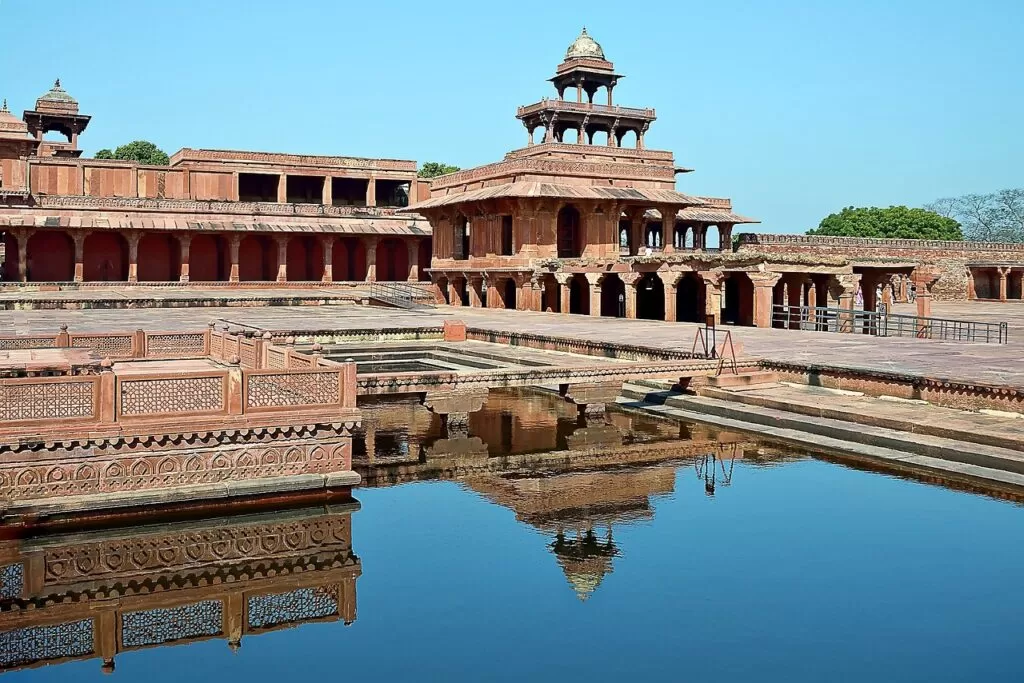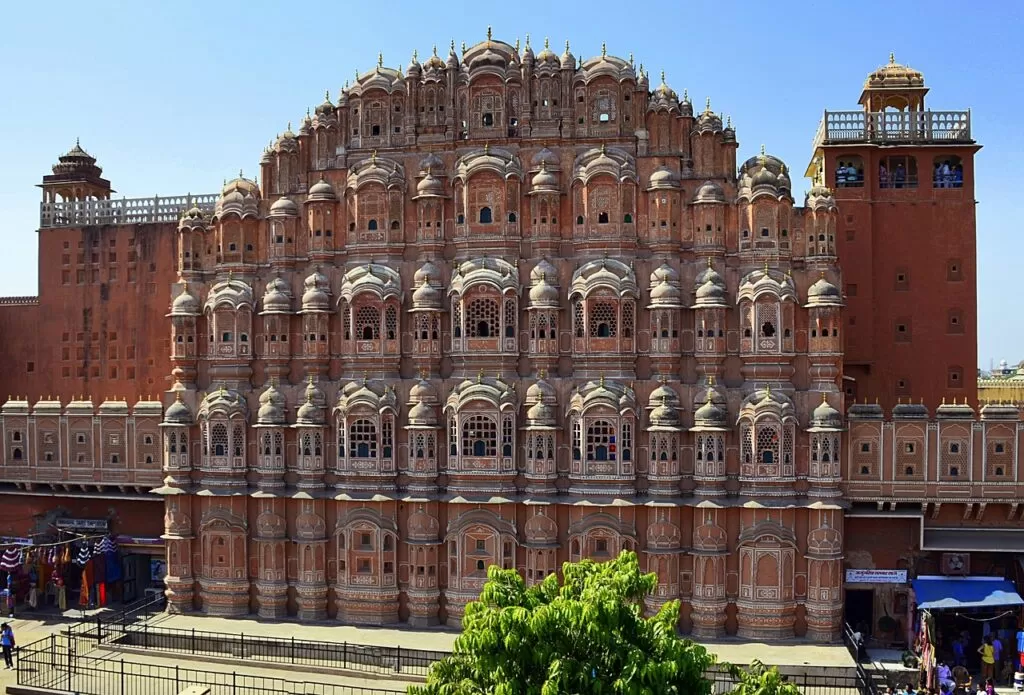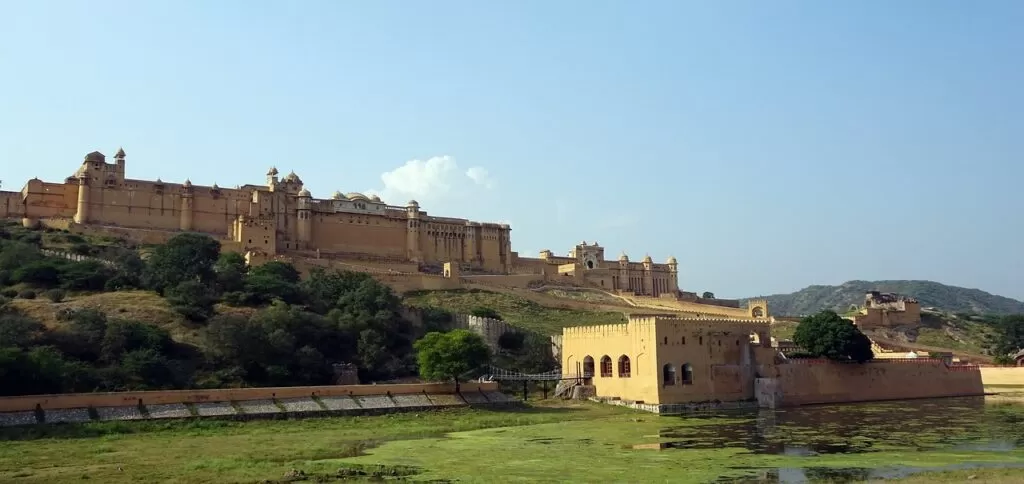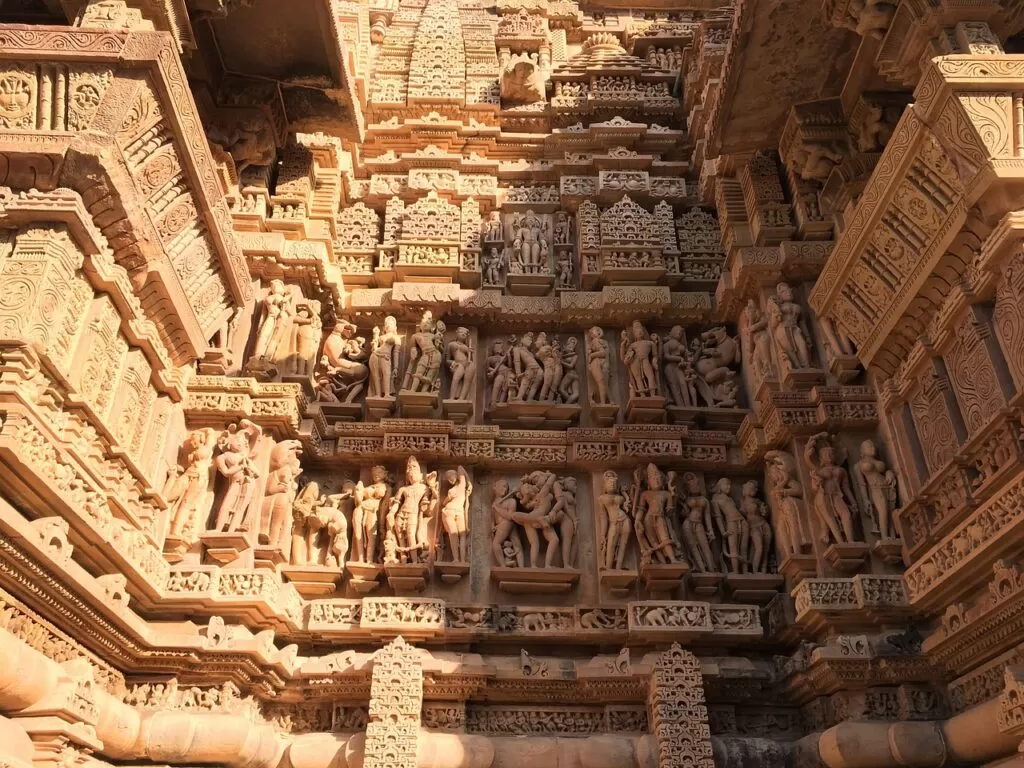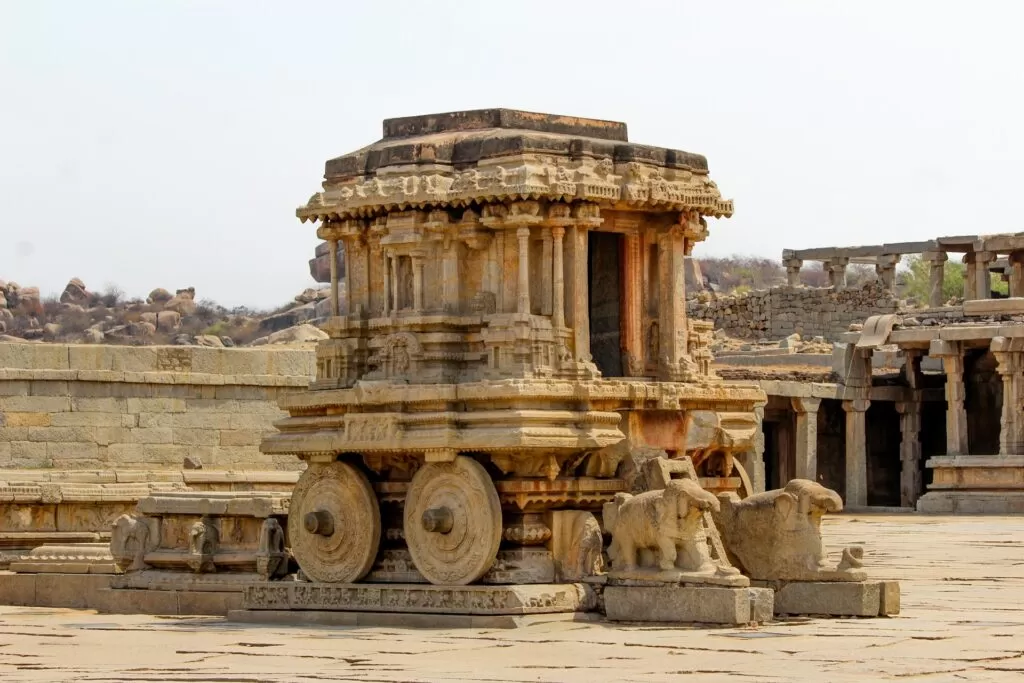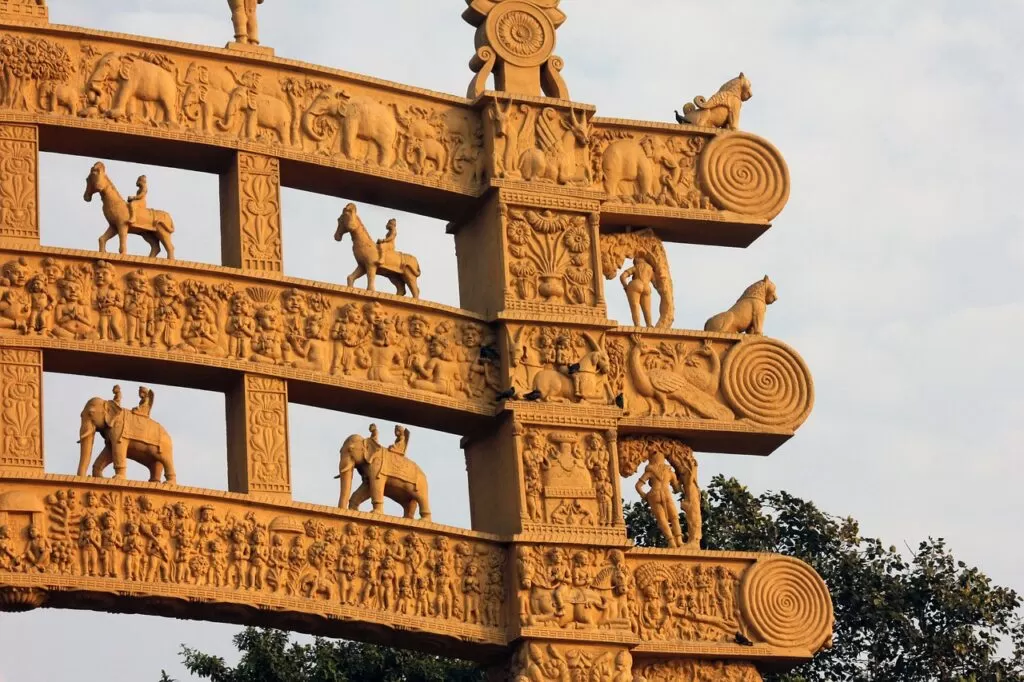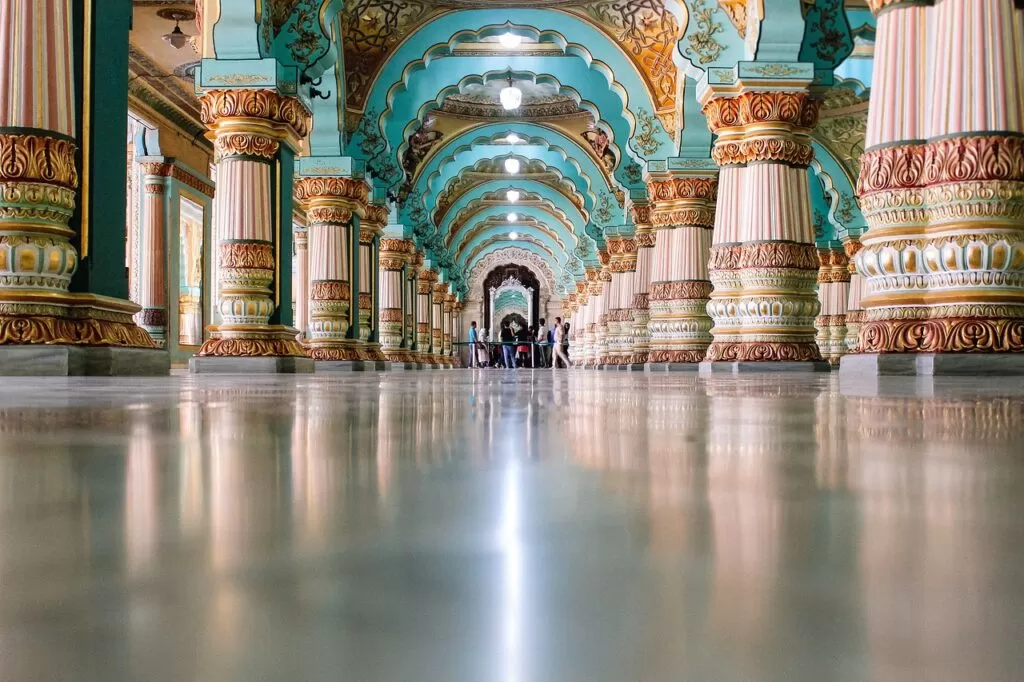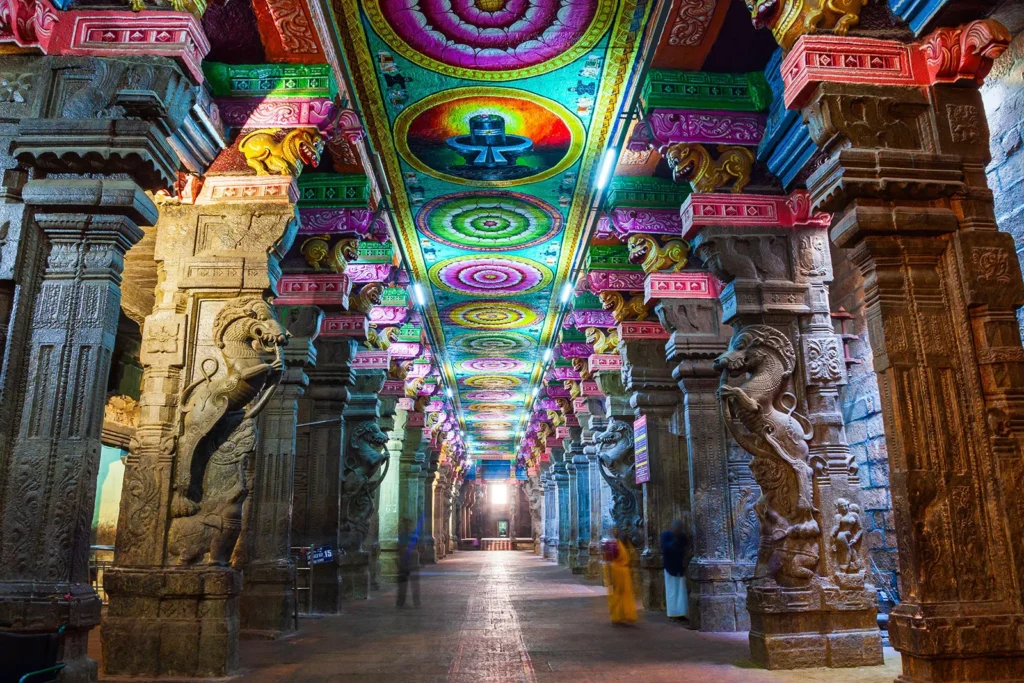India, with its rich history and diverse cultural heritage, is home to numerous famous historical sites that attract millions of visitors from around the world. From magnificent palaces and temples to ancient forts and tombs, each site tells a story of India’s glorious past. In this article, we will explore the top 12 historical sites in India, showcasing the country’s cultural richness and architectural marvels.
1. Taj Mahal: A Symbol of Eternal Love
Taj Mahal
The Taj Mahal, located in Agra, is undoubtedly one of the most iconic historical sites in India. Built in the 17th century by Emperor Shah Jahan as a mausoleum for his beloved wife Mumtaz Mahal, it is considered a masterpiece of Mughal architecture. The Taj Mahal is renowned for its white marble structure, intricate carvings, and symmetrical design. Visitors can explore the main mausoleum, the beautiful gardens, and admire the mesmerizing reflection in the surrounding reflective lakes.
2. Agra Fort: The Majestic Mughal Fort
Agra Fort
Situated in Uttar Pradesh, the Agra Fort is one of the oldest historical sites in India. Built during Akbar’s reign in the 16th century, it exemplifies the stunning Mughal architectural style. The fort served as the main residence of the Mughal emperors and offers breathtaking views of the Taj Mahal. Visitors can explore the fort’s massive walls, palaces, mosques, and the enchanting Diwan-i-Am or “Hall of Public Audiences.”
3. Red Fort: A Symbol of Mughal Grandeur
Red Fort
Located in Delhi, the Red Fort, also known as Lal Qila, is an iconic historical site that holds great significance in Indian history. Built during Shah Jahan’s reign in the 17th century, it served as the main residence of the Mughal emperors. The fort’s red sandstone walls, majestic gateways, and intricate architecture are a testament to the grandeur of the Mughal era. Visitors can explore the fort’s palaces, gardens, and attend the annual Independence Day celebrations held here.
4. Qutub Minar: A Towering Marvel
Qutub Minar
Standing tall in Delhi, the Qutub Minar is a magnificent minaret that ranks among the top historical sites in India. Built in the 13th century, it is the tallest brick minaret in the world, soaring to a height of 72.5 meters. The Qutub Minar showcases exquisite Islamic architecture, adorned with intricate carvings and inscriptions. Visitors can climb the tower’s spiral staircase to enjoy panoramic views of Delhi.
5. Fatehpur Sikri: The Abandoned City
Fatehpur Sikri
In the Agra district of Uttar Pradesh, lies the enchanting city of Fatehpur Sikri. Built in the 16th century by Emperor Akbar, this UNESCO World Heritage Site is known for its well-preserved buildings and architectural brilliance. The city features a blend of Mughal, Hindu, and Jain architectural styles, with notable attractions like the Buland Darwaza, Jama Masjid, and the Tomb of Salim Chishti. Exploring Fatehpur Sikri is like stepping back in time to the golden age of the Mughal Empire.
6. Hawa Mahal: The Palace of Winds
Hawa Mahal
Jaipur, the vibrant capital of Rajasthan, is home to the magnificent Hawa Mahal, also known as the Palace of Winds. Built in the 18th century, this five-story structure is an architectural marvel adorned with intricate lattice windows. The Hawa Mahal allowed the royal women to observe the city’s bustling streets while maintaining their privacy. Visitors can marvel at the unique facade and enjoy panoramic views of Jaipur from the top.
7. Amer Fort: A Majestic Hilltop Fort
Amer Fort
Perched on a hilltop overlooking Jaipur, the Amer Fort is an enchanting historical site that showcases the grandeur of Rajasthan. Built in the 16th century by Maharaja Man Singh, it features a fusion of Hindu and Mughal architectural styles. The fort’s ornate gates, stunning palaces, and intricate wall carvings leave visitors in awe. Exploring the Amer Fort’s courtyards and enjoying an elephant ride to the entrance is a memorable experience.
8. Khajuraho Temples: A Fusion of Art and Spirituality
Khajuraho Temples
Located in Madhya Pradesh, the Khajuraho Temples are famous for their intricate carvings and sensuous sculptures. Built between the 9th and 12th centuries, these UNESCO World Heritage Sites depict various aspects of life, spirituality, and love. The temples showcase a unique blend of Hindu and Jain architectural styles, with the most renowned being the Kandariya Mahadeva Temple. Exploring the temples and ,..0
10. Hampi: The Ruins of the Vijayanagara Empire
Hampi
In Karnataka lies the archaeological site of Hampi, once the capital of the Vijayanagara Empire. This UNESCO World Heritage Site is known for its sprawling ruins and impressive temples. Visitors can explore the magnificent Virupaksha Temple, the Vittala Temple complex with its iconic stone chariot, and the grand Elephant Stables. The landscape of boulders and ancient structures creates a surreal atmosphere that transports visitors to a bygone era.
11. Sanchi Stupa: A Buddhist Gem
Sanchi Stupa
In Madhya Pradesh, the Sanchi Stupa stands as a testament to India’s rich Buddhist heritage. Built in the 3rd century BCE, it is one of the oldest stone structures in India. The stupa, adorned with intricate carvings and gateways, is a pilgrimage site for Buddhists. Visitors can explore the ancient relics and admire the serene ambiance of the site, which holds great significance in the spread of Buddhism in India.
12. Mysore Palace: The Epitome of Royalty
Mysore Palace
The opulent Mysore Palace, located in Karnataka, is a dazzling example of architectural grandeur. It serves as the official residence of the Wadiyar dynasty, the former rulers of Mysore. The palace’s Indo-Saracenic architecture, intricate interiors, and beautifully lit facade during festivals leave visitors spellbound. Exploring the palace’s courtyards, halls, and gardens gives a glimpse into the royal history of Mysore.
13. Konark Sun Temple
Located in Odisha, the Konark Sun Temple is a marvel of ancient Indian architecture. Built in the 13th century, the temple is dedicated to the Sun God Surya. Its intricate stone carvings, depicting scenes from everyday life and mythology, are a testament to the artistic brilliance of the time. The temple’s unique chariot-like structure and its position to capture the first rays of the rising sun make it a must-visit historical site.
India’s historical sites are a treasure trove of architectural wonders, cultural heritage, and fascinating stories. Visiting these sites allows travelers to immerse themselves in the rich history and experience the grandeur of ancient India. Whether it’s the iconic Taj Mahal, the majestic forts, or the intricate temples, each historical site unfolds a different chapter of India’s glorious past. Plan your journey and embark on a captivating exploration of India’s historical heritage.

